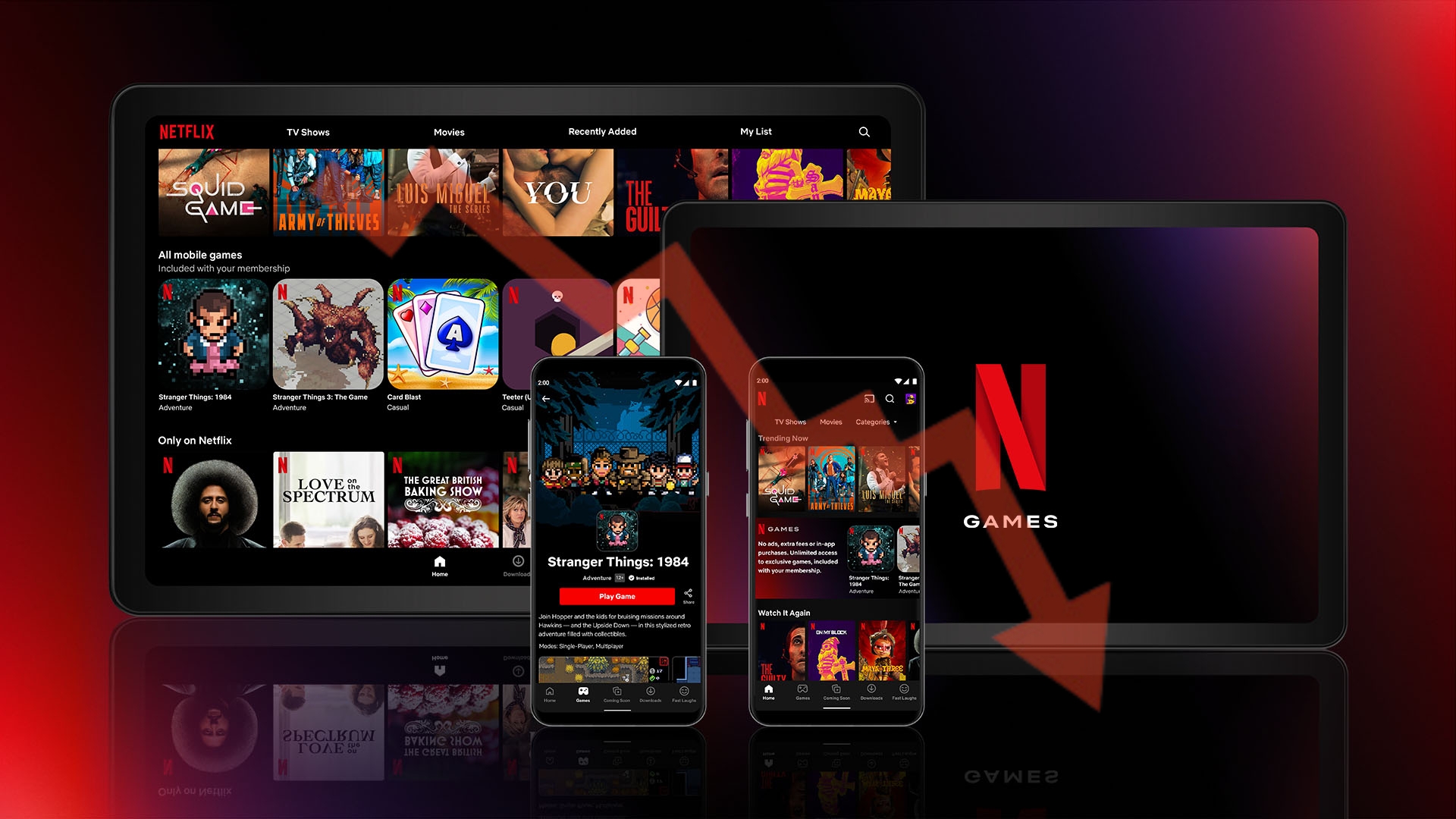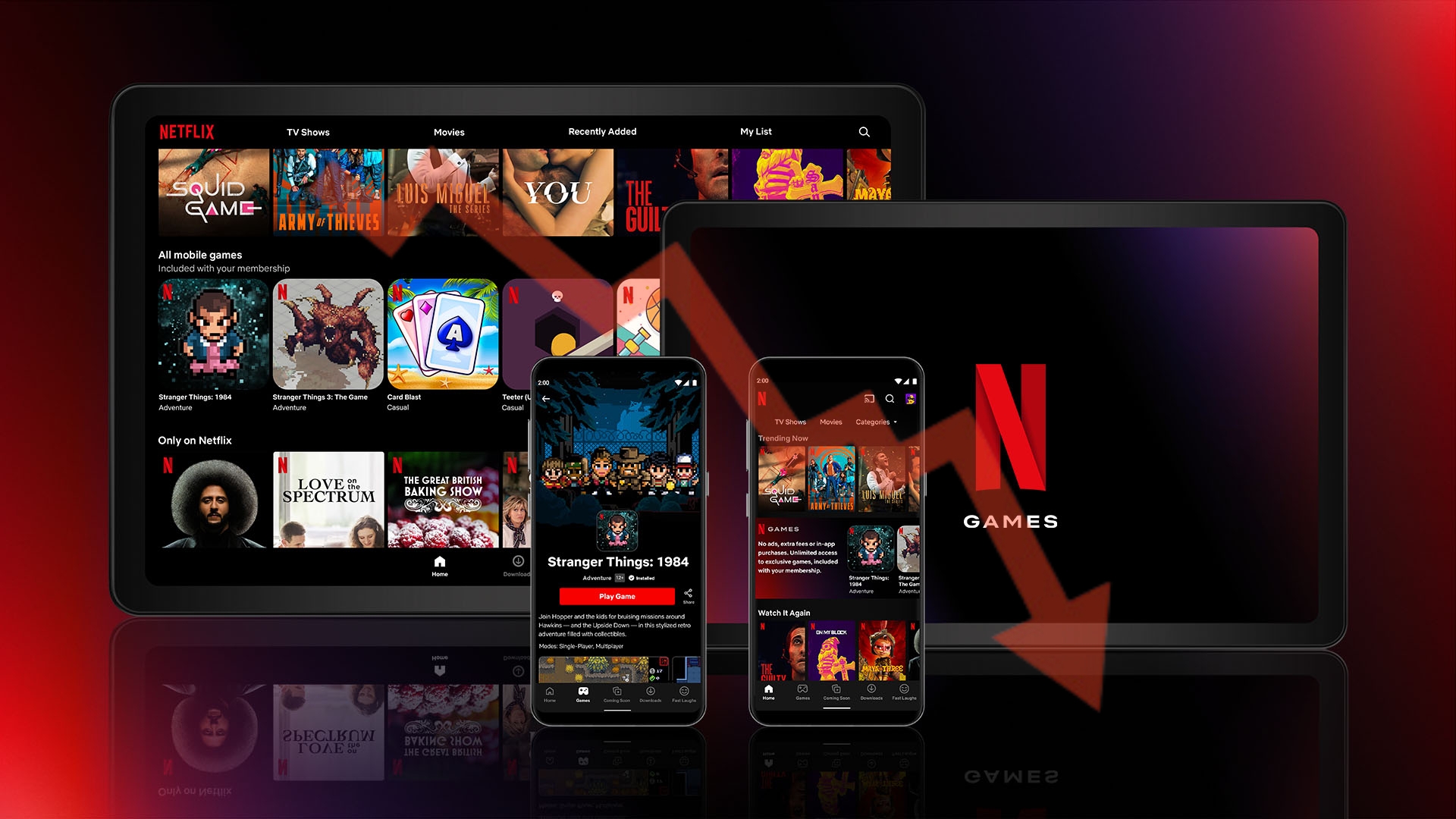Netflix stock has crashed twenty-five percent after the company reported its first major subscriber losses in over a decade.

So... Netflix kinda has a crisis right now. What the bloody hell is going on?
As reported in Netflix's most recent quarterly report, the company's subscription numbers plummeted by about 200,000 in the first quarter of 2022. That's... bad... right? Let me break it all down for you, so you'll know whether or not Netflix is actually dying.
Netflix Loses Subscribers and Share Prices
The streaming giant originally predicted that it would add an additional 2.5 million subscribers in the January-March period, but instead lost 200,000 compared to Q4 2021 levels. As a result, its stock price fell by 22 percent. Pretty major, right?
Netflix explained these losses to its shareholders by stating that the growth in streaming due to Covid was well and truly over. Oh, they also blamed their woes on account sharing, but that sounds like bollocks to me.
Streaming is winning over linear, as we predicted, and Netflix titles are very popular globally. However, our relatively high household penetration - when including the large number of households sharing accounts - combined with competition, is creating revenue growth headwinds. The big COVID boost to streaming obscured the picture until recently.
According to CNN Business' analysis, Netflix Inc. stock has so far plummeted more than 40 percent in 2022, possibly due to an assortment of reasons. Still, Netflix stocks are still forking expensive, sitting at about $348.41 USD right now, bouncing ten percent in a single day after a catastrophic drop over the Easter long weekend.
The drop in share price occurred during after-hours trading over the long weekend, but does seem to be growing once more, so try not to worry. With more than 222 million households using the service, a drop of 200,000 is not a significant loss, but certainly looks bad for the rich blokes who own ridiculous numbers of stock and certainly enjoy counting their pennies.
It also needs to be said that Netflix is facing challenges due to the influence of Disney+, which has seen a large assortment of purchases over the last months and years. With the purchase of 20th Century Fox in particular, as well as Marvel, hundreds of television programs and films have been removed from Netflix. We're sure that you're feeling the effects, so much has been removed it's actually wild.
In addition, the impact of both the Covid-19 Pandemic and Russia's invasion of Ukraine, has also been felt by Netflix. The company admitted that "sluggish economic growth, increasing inflation, geopolitical events... have an impact as well."
Russian Doll Season 2 premieres in 12 hours! Here's a refresher on everything that happened - and then happened again and again - in Season 1 pic.twitter.com/cMS2d18zoY
— Netflix (@netflix) April 19, 2022
Is Netflix Dying?
This all doesn't necessarily mean that we have much to worry about Netflix in the long term. Realistically, it used to be the only giant in this industry, as the first mainstream film and television show streaming platform, so it's kinda to be expected. It revolutionized the space, but that, of course, doesn't mean that it will retain its position as the top dog (a good case study for this would, of course, be MySpace).
With a plethora of other platforms now stealing much of the content that used to be shown on Netflix, and even producing their own exclusive content, users are obviously now getting multiple subscriptions so that they can see all the cool s**t that is coming out at the moment. This is not always going to be possible, though, and many people will end up shifting to different services like Disney+ simply due to a lack of money.
Last year, Netflix diversified into the video games market, but it doesn't seem to have seen a whole lot of success in that department. As you can tell, Netflix had a couple of hiccups, but it's not necessarily dying.
In the end, Netflix shares are still darn expensive, and also still have a ton of great content and a very affordable subscription service. The main problem is that its competitors are now getting to the point where they can become exactly that; competitors. Netflix now needs to differentiate itself from the pack, and the only question is how they will achieve this differentiation.






























